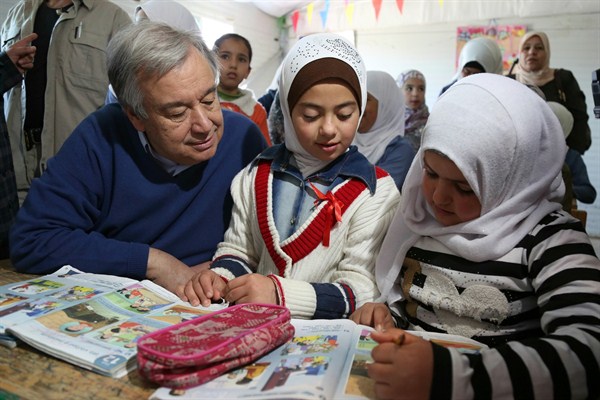Can Antonio Guterres save the United Nations from the tyranny of overinflated expectations? The U.N. secretary-general, who has been on the job for four months, seems clear about the limitations of his post.
When the Security Council selected Guterres for the job last October, he declared that the Syrian war would be his top priority. But speaking in London last week, he implied he could not do much about it. Peace will only be possible, Guterres noted, “when all the parties in the conflict understand and believe they cannot win the war.”
This is not exactly a revelation: U.N. officials have been saying as much in private, and sometimes in public, for years. The chances of the U.N. pulling off a miraculous peace deal have declined even further in recent months, as Russia has aimed to take direct control of cease-fire talks alongside Turkey and Iran. U.S. President Donald Trump has repeatedly signaled that he wants to strike a deal over Syria with his Russian counterpart, Vladimir Putin. Guterres would have to be delusional to imagine that, in these circumstances, the U.N. can play a leading political role.

